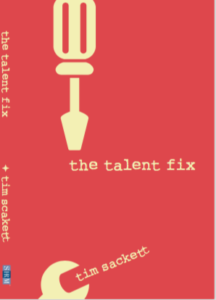Right now you’re probably in the middle of your ‘summer’ work schedule. You know where the office gets out early on Friday or doesn’t even come in on Friday so everyone can have the long weekend and enjoy the great summer weather. In the North and Midwest, where we have short summers, this is fairly common.
I have a confession to make. I’m an awful judge on what I really want for myself.
When I was in college I scheduled myself from 8 am to noon, Monday through Thursday believing how great it would be to get school done early and have the entire rest of the day off to do whatever it is I wanted, and have a long weekend. It was a disaster! Not only did I have my afternoons and long weekend, I also had most mornings off, because I didn’t drag my butt out of bed to go!
I have this same ‘traditional’ mindset when it comes to flexibility scheduling at work. In my mind, I believe I would want to either take off Friday (ideally, choice #1) or Monday so that I could always have a long weekend. Without really putting thought into it, I think most people would say the same thing.
As with everything nowadays, some research is helping to shape my mind differently:
The key is giving yourself a beat, a day to make your own pace, and to break the tyranny of the over-scheduled work week. Our human experience of time is ordered by “pacers,” both internal (like being a “morning person” or a “night owl”) and external, like the work week or a deadline, says Dawna Ballard, a communications professor at University of Texas at Austin and a scholar of chronemics, the study of time and communication. “Everyone has a different chronotype. Some people are slower moving, some people are faster moving,” she told me over the phone. “Our work, though, just goes and throws that out the window and says actually, this is how fast you have to work, this is when you have to work…
…One of the hallmarks of modern life is that our internal and external pacers are often at odds with one another—one reason Monday mornings are difficult. “You’re coming off from a weekend, where you do have your own pace,” Ballard says, explaining the Monday blues from a social science perspective. “It’s having to go from your pacer, back to this other pacer, there’s that friction.”
So, what’s the best day to take off in your week?
Wednesday!
Having that break in the middle of your week does a couple of really positive, psychological things. One, you go into your week knowing you only have two days of work, until your next break to do ‘you’ stuff. Then, another couple of days before a two-day break. The second thing is having that mid-week break allows us to do life stuff when it’s less busy with everyone else doing ‘life’ stuff.
You can go work out at the gym and it’s not busy. You can go to a doctor’s appoint or get your hair done in the middle of the day, that’s not a Saturday. You can go to the DMV when it’s quieter than normal. You can take a breath at home, while it’s quiet and recharge your batteries.
When you look at adding a little bit of flexibility to your organizations, it doesn’t always have to be some sort of “we’re letting everyone out early on Friday”. Maybe some of the best ‘flexibility’ would be having a half-day on a Wednesday! Can you imagine instead of a half day on Friday, you got a half day on Wednesday each week? How would your life change?
The next time you use a PTO day to extend a weekend, rethink what you’re doing and try taking a PTO day on a Wednesday. It just might be the break you need to keep you fresh all week!

